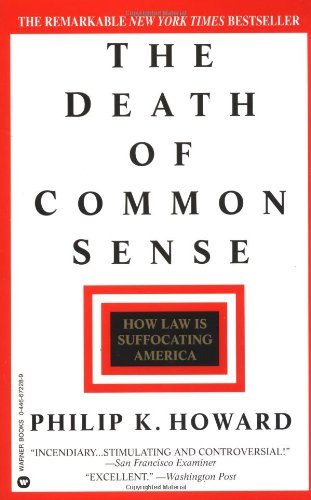What do you think?
Rate this book


224 pages, Paperback
First published January 13, 1995
Columnist Russel Baker, pondering why all shopping malls seemed to be identical, concluded that it was probably one mall traveling around at the country at the speed of light. Modern law sis trying to mall-ize every regulated activity. The main victims are small enterprises, poorer segments of society, and the spirit of ingenuity on which this country achieved its greatness.
And why do you think the malls all look alike?
around at the country at the